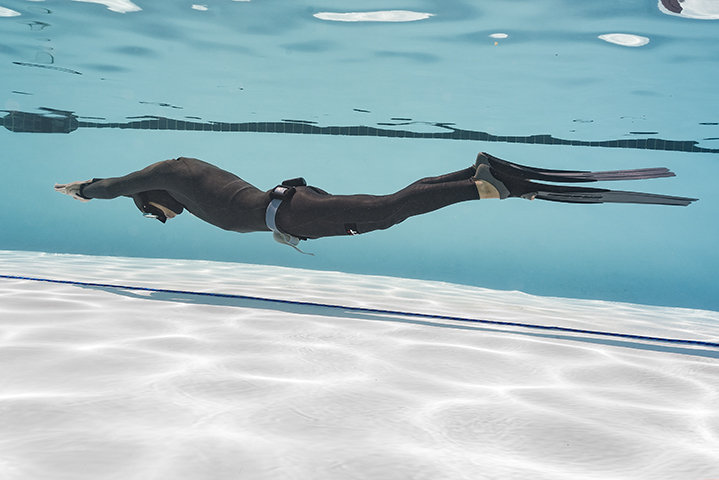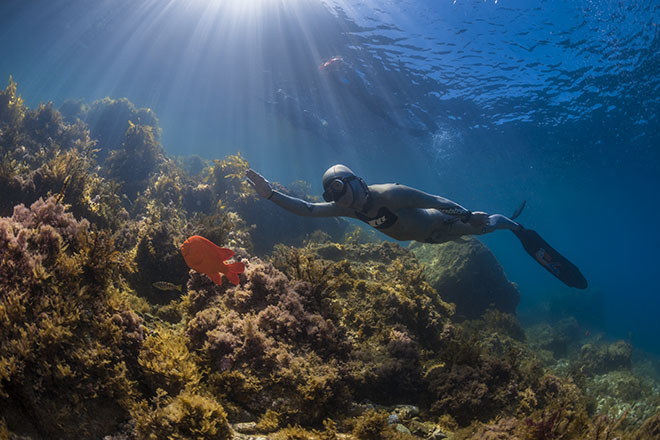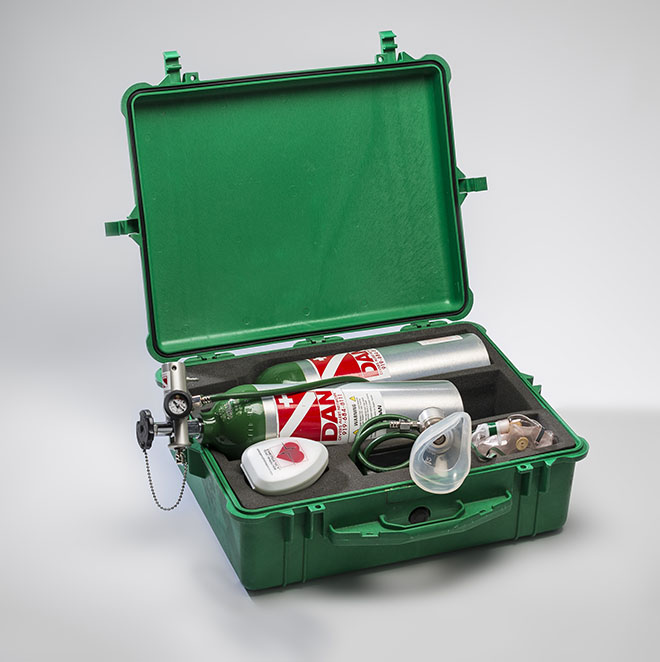You have 0 product(s) in your cart.
Abyss Scuba Diving
Freediving Questions Explained

How is Freediving different from snorkelling?
Snorkelling is the casual act of putting on a mask and snorkel and looking below while floating. Snorkelers may not have any training and spend most of the time on the surface. Skin diving takes snorkelling a step further by adding short dives underwater. Skin divers may have training that teaches skills, such as efficient dives and snorkel clearing.
Freediving uses advanced breathing techniques and diving skills to increase depth and time underwater. Through training, freedivers learn to conserve oxygen while breathholding while practising different freediving disciplines, such as static apnea, dynamic apnea, free immersion and constant weight freedives.

How do I learn to freedive?
The PADI Freediver course contains three phases – knowledge development, confined water sessions and open water sessions. During knowledge development, you learn about how your body reacts to breathholding and how water pressure affects you as you dive down. You also learn about freediving equipment, important safety rules and buddy procedures.
In confined water, such as a swimming pool, you learn breathing techniques, then practice breathholds while floating (static apnea) and while swimming (dynamic apnea). You also practice basic rescue techniques and learn your role as a buddy.
During at least two open water sessions, you practice diving down while breathholding, either by pulling yourself along a line (free immersion) or duck diving head first while following a line (constant weight). You learn to gradually increase your depths by relaxing and enjoying each dive. Rescue practice is another key part of the open water sessions.

How long does it take to get certified?
The PADI Freediver course is flexible and performance based, which means that your PADI dive shop and PADI Freediver Instructor can offer a wide variety of schedules, organised according to how fast you progress. Knowledge development is handled through independent study with the PADI Freediver Touch – an interactive tablet-based app.
You pace yourself as you work through each topic, then complete an overall Knowledge Review, then an Exam. There are at least three water sessions that we scheduled on separate two days.
During confined and open water sessions, your PADI Freediver Instructor will focus on helping you become a confident and comfortable freediver, not on how long it takes. You earn your certification based on demonstrating you know what you need to know and can do what you need to do.
This means that you progress at your own pace – faster or slower depending upon the time you need – to become a competent freediver.
What are the requirements for learning to freedive?
The minimum age is 15 years old for the PADI Freediver course and 12 years old for the
PADI Basic Freediver certification. PADI Basic Freediver is a subset program on the PADI Freediver course that only includes knowledge development and a confined water session.
All student divers complete a medical history form that asks about medical conditions that could be a problem while freediving. If none of these apply, sign the form and you’re ready to start.
If any of these apply to you, your doctor must, as a safety precaution, assess the condition as it relates to freediving and sign a medical form that confirms you’re fit to dive. In some areas, local laws require all students to consult with a physician before entering the course.
Download the PADI Freediver Medical History Form.
Your PADI Freediver Instructor will have you demonstrate basic water skills to be sure you’re comfortable in the water.
This is a 200-metre swim or 300-metre swim using a mask, fins and snorkel without stopping. There is no time limit for this, and you may use any swimming strokes you want. Any individual who can meet the performance requirements of the course qualifies for certification.
What are the different PADI freediver certification levels?
PADI Freediver course – Develops the knowledge and skills for basic static apnea, dynamic apnea, free immersion and constant weight freediving from 10-16 metres. When completing open water training is not feasible or desirable, students complete just the knowledge and confined water skill portion of the PADI Freediver course (6 metres maximum) to earn the PADI Basic Freediver rating.
PADI Advanced Freediver course – Expands knowledge and skills, and with further development in static apnea, dynamic apnea, free immersion and constant weight freediving from 16-24 metres
PADI Master Freediver course – Continues knowledge and skill development with further development in static apnea, dynamic apnea, free immersion and constant weight freediving from 24-40 metres
How much do Freediving lessons cost?
Compared with other popular adventure sports and outdoor activities, learning to freedive isn’t expensive. For example, you can expect to pay about the same as you would for:
- a full day of surfing lessons.
- a weekend of rock climbing lessons.
- a weekend of kayaking lessons.
- a weekend of fly-fishing lessons.
- about three hours of private golf lessons.
- about three hours of private water skiing lessons.
- one amazing night out at the pub!
Check out our course prices.
What are the most common injuries or sickness associated with Freediving?
Sunburn, seasickness and dehydration, all of which are preventable, are the most common problems freedivers face. Injuries caused by not equalising ears do occur, but these can be avoided by using proper technique and returning to the surface if your ears are not equalising easily.

I am currently certified as a freediver through another organisation. How can I become a PADI Freediver?
As a freediver certified through another training organisation, you can enrol in the next higher level in the PADI Freediver system after a skills and knowledge assessment by a PADI Freediver Instructor. The level you can enrol into depends on your current certification. Check with Abyss Freediving (02 95839662) to confirm your rating.
Recent Posts





